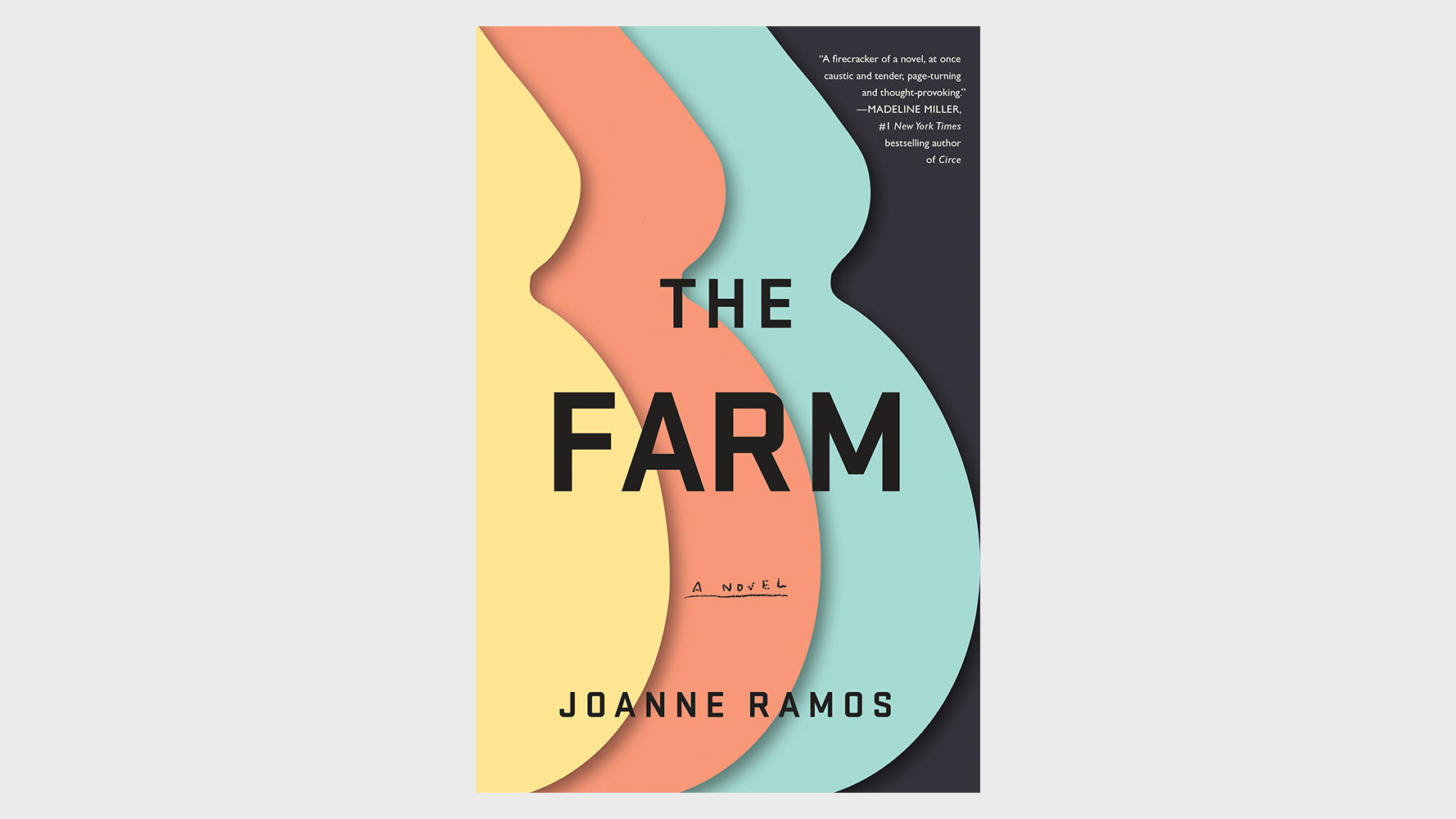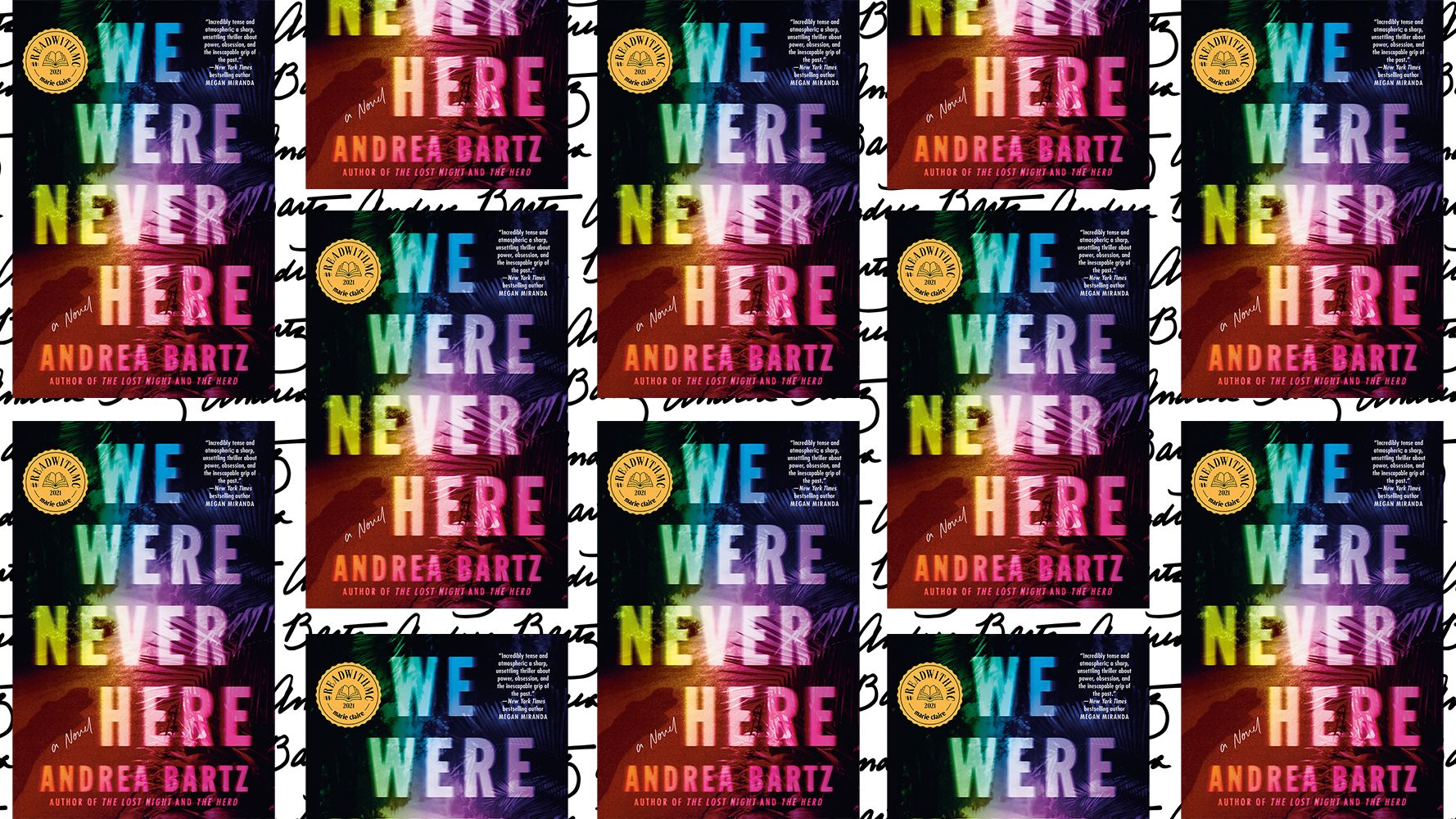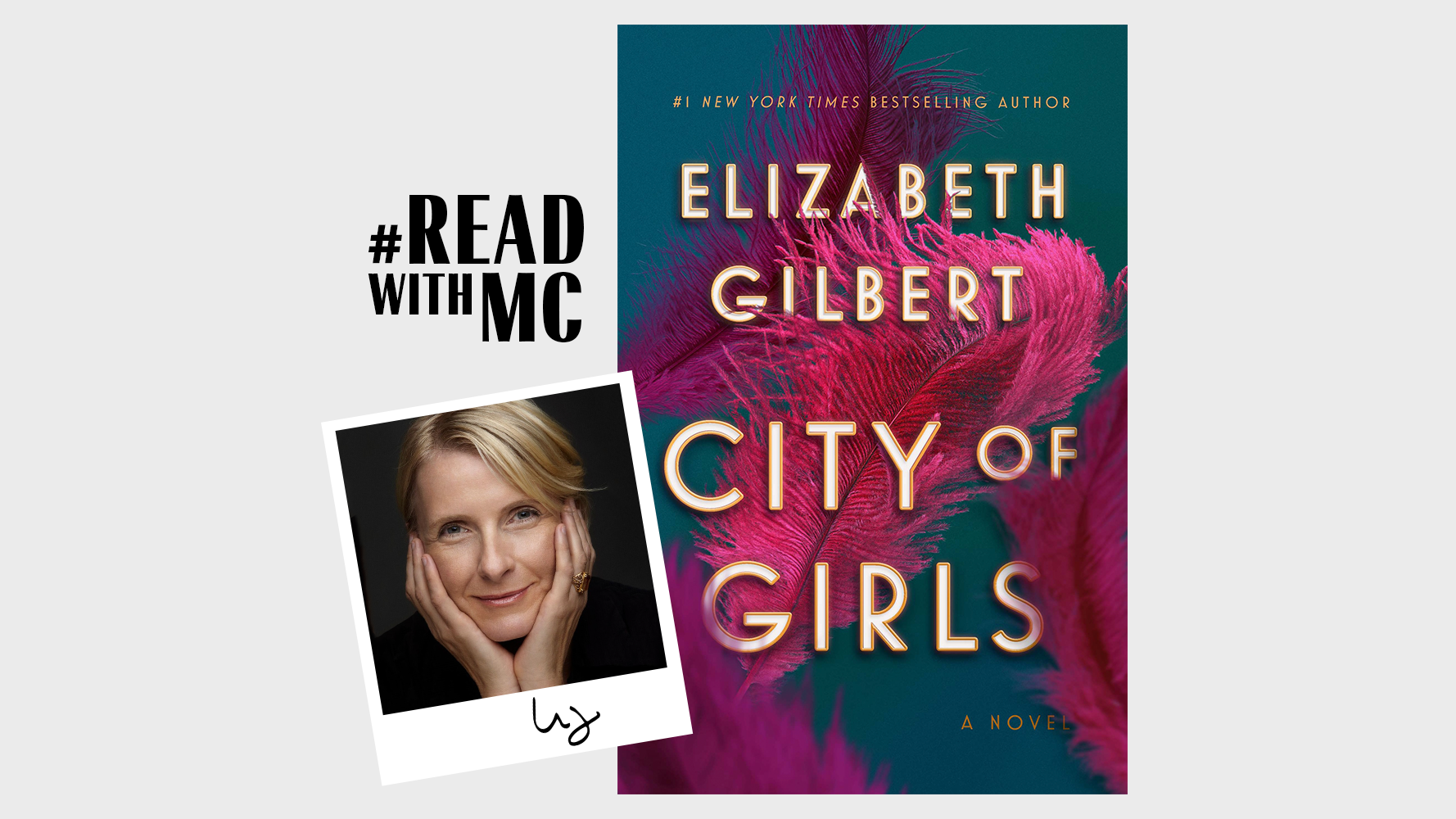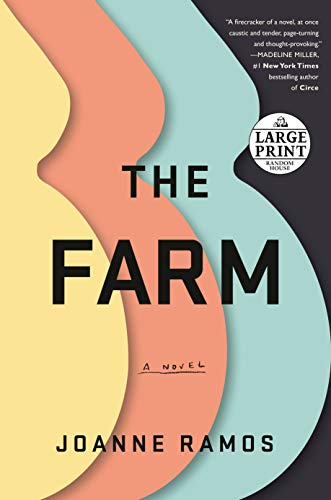Joanne Ramos' 'The Farm' Forces Us to Take a Complicated Look at Our Society
"If this kind of surrogate facility already existed in New York, I wouldn’t be surprised."


A lot of readers have compared Joanne Ramos' The Farm to The Handmaid's Tale but, quite frankly, the novel stands on its own. Ramos tells a compelling story about Jane, an immigrant from the Philippines, whose cousin Ate convinces her to apply to The Farm—a posh surrogacy facility in Hudson Valley, New York, that pays big bucks to its surrogates—to help give Jane's own daughter, Amalia, a better life. It sounds great, except the facility monitors your every move, you're not allowed to meet the parents, a.k.a. "clients," and leaving the grounds is unacceptable.
As one #ReadWithMC reviewer notes, "I expected some Handmaid's Tale-type vibe, but it wasn't the case at all. It felt very realistic and it's scary to think I wouldn't be surprised if this place really existed somewhere!" In a Marie Claire interview, Ramos revealed these type of facilities do actually exist...without the luxury. Which leaves readers with an important question: Should this book really be classified as dystopian?
See what else #ReadWithMC had to say about the novel, below, then find out how you can have your review featured on the site for next month's Marie Claire book club pick (City of Girls by Liz Gilbert), here.
"Joanne Ramos’ The Farm is a true testament to the power of love—whether it be love from a mother, family, friend, or self, the sacrifice we’re willing to make for those in our lives is unbreakable. Incredibly timely and at times terrifying. Couldn’t put it down!" —@Krysty_C
Joanne Ramos’ ‘The Farm’ is a true testament to the power of love. Whether it be love from a mother, family, friend, or self, the sacrifice we’re willing to make for those in our lives is unbreakable. Incredibly timely and at times terrifying, couldn’t put it down! #ReadWithMC pic.twitter.com/URpmrL8XTbJuly 1, 2019
"I enjoyed this book but it wasn't what I expected at all. I thought it was going to be dystopian because I saw some descriptions that used that term and I expected some Handmaid's Tale-type vibe, but it wasn't the case at all. It felt very realistic and it's scary to think I wouldn't be surprised if this place really existed somewhere!
The book is about a luxury retreat complex where surrogate mothers stay for the entirety of their pregnancy and are pampered (and monitored) for the sake of the unborn child. The interesting thing is how compensation and ownership is navigated through the stories of the women at The Farm. There are a lot of socio-economic issues that are tackled as well in terms of what is considered 'premium' in terms of Host mothers (eek even the term creeps me out). I really enjoyed the writing as well as the story. It was captivating. The only issue I had was the ending! It was wrapped up too neatly and I just didn't buy it or honestly...like it. Overall, it was still an interesting and page-turning read!" —@readtotheend
A post shared by Caroline // readtotheend (@readtotheend)
A photo posted by on
"Half-baked but well-intended. 3.5/5 stars." —@ha_lyons
Get exclusive access to fashion and beauty trends, hot-off-the-press celebrity news, and more.
A post shared by Marie Claire (@marieclairemag)
A photo posted by on
"Unlike books such as The Handmaid's Tale where 'surrogates' are used to help continue the human population at a horrid price to the Handmaid's, The Farm gives immigrants and those who need money a chance to be a surrogate for those who have the finances to have a baby through them—either because they cannot have one of their own, don't want to 'wreck' their own bodies, or are paying top dollar for those surrogates who are educated, test well, have high percentage of carrying to term and have passed the vigorous application process. As if the Host's own genes will play some part in the implantation and vibrant being of this new baby. The catch, and there always is one, is that they are sequestered off to Golden Oaks for the duration of their pregnancy and have to abide by certain rules.
This story revolves mostly around Jane, who leaves her own young daughter behind with the thought that in the long run, they will both be better off with the money that she makes to set up a better future. We also get introduced to Reagan and Lisa, two other Hosts at the Farm that make an impact on Jane. Rounding out this cast is Mae - who works for the company and as such can be manipulative to make sure things run as smoothly as possible, and Ate, Jane's relative who suggested this process and is taking care of Jane's daughter in the interim.
I love this idea and I really wanted to love this book but it didn't quite work for me. I think I expected more manipulation and horror than I got - and I know, I know, it's already a horror show when it comes to women's bodies. I guess I was just expecting something... more... from the story. There is a bit of an undertone through the book that suggests worse things are coming but yet we never get there. The classism and manipulation of the wealthy to the poor is fairly well sorted out and we do get the sense of doing what women need to do and the hard choices that are made as mothers, immigrants, poor women... but it doesn't quite hit the mark fully. The potential is there but the execution, for me, was a bit lacking.
I also was a bit confused how we get to a certain point at the end of the book and then boom, we're now three years in the future and um... what? Not as seamless as it could've been. The subject matter is definitely a timely one. However, I felt I was going into this read on a more dangerous baby making farm type of read and instead I received something wholly different." —Chandra on Goodreads
"I read this book in one sitting! It’s a striking look at how dystopian and cruel to women our late capitalist society has the potential of being. I would say it was sci-fi, but it’s just too realistic. I also love how complicated all the characters are. No one fits neatly into a trope, people are just trying to take care of themselves. I loved it." —@hella_drella
[instagram align='center' id='BzOceNkhphH']https://www.instagram.com/p/BzOceNkhphH[/instagram]
A post shared by Marie Claire (@marieclairemag)
A photo posted by on
"I finished this book a few weeks ago, and I’m finally now getting around to posting my review. Admittedly, I wasn’t as wowed as I think most people were. The concept was interesting, and I really enjoyed how Ramos was able to weave dystopian themes into contemporary fiction. This book could be set in the future, but it could also be set right now; if this kind of surrogate facility already existed in New York, I wouldn’t be surprised. The themes were current and timely—the extreme monitoring of pregnant individuals, how privilege impacts pregnancy, and how opportunities and work are influenced by privilege. Overall, I thought the concept was really fascinating, but it took me a while to get through it. I felt like I was sloughing through parts of it, and I didn’t find it to be a page turner. This was only a three star read for me, but I’ve seen plenty of wonderful reviews so if you’re on the fence, I’d still say go for it!" —@sweetnoveltea
A post shared by Rebecca (@sweetnoveltea)
A photo posted by on
"The Farm was such an emotional journey for me. The characters were so complex and layered—at times, I hated them, and at others, I wanted to hold them and just cry. Writing from each character’s vantage point really set the story up in a spectacular way that made it impossible to cast judgment on them, which I think was kind of the point. People are complicated, and that makes morality complicated too. Such a good read. And that ending??" —@spiceghel
A post shared by Marie Claire (@marieclairemag)
A photo posted by on
"'Or will she admit, as she has rarely conceded, that life is sometimes more complicated than easy judgements? That maybe, sometimes, you do the most good when it seems like you’re doing nothing much at all.' The Farm is a character-driven exploration of race, immigrants and social differences in today’s society. The book is centered around Golden Oaks, a company that serves as a live-in center for surrogates that offers a competitive and potentially life changing 'delivery bonus' to the surrogates. Joanne Ramos uses starkly different characters within the novel—Jane, a Filipina immigrant who joins Golden Oaks to earn money for her baby, Amalia, her older cousin, Evelyn, and Reagan, a 'premium host' that comes from an upper-class white family, but wants to follow her dreams to be an artist which her father won’t finance—to weave a narrative that shows how people can be manipulated and exploited based on their situation.
I found this book to be super fascinating, similar to Handmaid’s Tale in the sense that this 'dystopia' seems only steps away from the current climate we live in. Joanne Ramos did such an amazing job writing these characters and making the narrative seem even more real. Additionally I felt that the use of different character perspectives added to not only character development, but excitement within the novel. I was slightly disappointed in the ending only because I wasn’t ready for the book to be over! Definitely worth the hype it’s been getting!" —@nycbookfriends
A post shared by Jamie & Alison (@nycbookfriends)
A photo posted by on
"The Farm is a biting social commentary. Joanne Ramos is outraged in a good way. Her outrage simmers below the surface at times. Other times, it boils over. At first glance, the novel appears as an indictment of the one percent and their exploitation of the poor. But for Golden Oaks (the novel's high-end surrogacy business) to thrive, the desperation of poor surrogates is only one component of the story. Golden Oaks also depends on the complicity of the slightly better off poor, the cold ambition of the white collar class, and the good intentions of the socially conscious affluent.
Perhaps the most chilling aspect of the story is that there doesn't seem to be anything standing in the way of a facility like Golden Oaks operating in real life. This is troubling. The Farm is a brilliant debut novel. Add it to your summer TBR list." —Greg on Goodreads
"The Farm is about impoverished women working as surrogates to wealthy families at a place called Golden Oaks. In many ways this story felt like a modern sister of The Handmaid’s Tale in the way that women in the story lose control of their body and other choices. I connected with the characters and the impossible choices they needed to make to survive and support their family. This books raises a lot of timely ethical questions and leaves the reader thinking about what they’d do in these situations. I enjoyed the alternate perspective story. The ending felt abrupt and I was hoping for more, but overall I enjoyed this thought provoking story. I read it in two days!" —@books.beer.bathbombs
A post shared by Kait 📖🍻🛁 (@books.beer.bathbombs)
A photo posted by on
Missed out on our June pick? Starting July 1, we'll be reading New York Times bestselling author Elizabeth Gilbert's latest novel, City of Girls. Learn more about the book and read an exclusive interview with the author here.
For more stories like this, including celebrity news, beauty and fashion advice, savvy political commentary, and fascinating features, sign up for the Marie Claire newsletter.
[editoriallinks id='2e1a1915-5686-4cad-8dc5-cbbae0f54a94'][/editoriallinks]
RELATED STORIES


Rachel Epstein is a writer, editor, and content strategist based in New York City. Most recently, she was the Managing Editor at Coveteur, where she oversaw the site’s day-to-day editorial operations. Previously, she was an editor at Marie Claire, where she wrote and edited culture, politics, and lifestyle stories ranging from op-eds to profiles to ambitious packages. She also launched and managed the site’s virtual book club, #ReadWithMC. Offline, she’s likely watching a Heat game or finding a new coffee shop.

